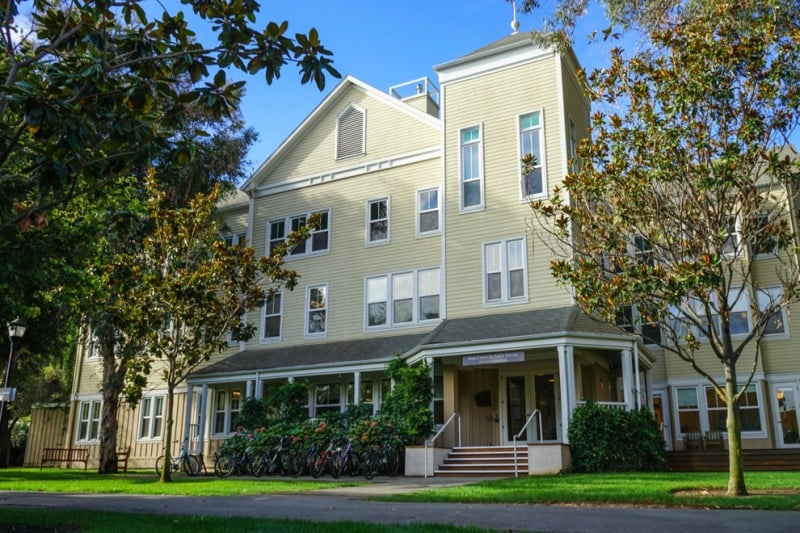With this year’s extended winter break, many Stanford students turned their attention toward non-academic initiatives, including service. Among their focuses: programs to combat food insecurity, increase student voter turnout and provide companionship to stroke survivors.
One of many undergrad students leading their own initiative during the break was Charlie Hoffs ’22. Back in April, Hoffs and Isabelle Foster B.A. ’18 M.S. ’19 launched unBox, which uses data analysis, policy advocacy and community service to battle increasing food insecurity across the United States.
One of their projects, the BayAreaCommunity.org Resource Website, guides those in need towards resources such as food pantries or school meal sites. Additionally, their SNAP Online Guides provide SNAP participants direction on how to order fresh and healthy foods from the internet directly to their house.
As food insecurity increased due to economic hardship brought on by COVID-19, Hoffs and Foster’s desire to help struggling communities as well as their abundance of time expanded unBox into a much larger operation. While much of their initial focus was on the Bay Area, the accessibility of video calls allowed unBox to operate across every state with volunteers working from 14 different states.
Foster and Hoffs used their extended break to spend time reviewing their program’s long-term questions and goals rather than being caught up in the daily hustle.
“It’s been an opportunity for me to exhale and reflect more deeply,” said Hoffs.
“It was a little bit harder to start something knowing that you’re about to start the quarter three weeks later, so I think this longer break has definitely been really useful for getting increased interest from students,” Foster added.
Other organizations leaned on Stanford’s Haas Center for Public Service for support and guidance. Remote volunteering has resulted in students “finding new and creative ways to meet community needs,” Haas program manager Peggy Propp told The Daily.
One group working to adapt to the pandemic is Healing Strokes, founded by Francesca Kim ’22 in 2019 to provide companionship to stroke survivors and their caregivers via art therapy sessions. Once Kim turned her efforts virtual this spring, survivors from across the country signed up to receive their art supply package and participate.
“We don’t really have a limitation on where the [participants] come from,” Kim said.
During the extended winter break, Healing Strokes used the extra free time to research the most effective methods of art therapy and how they could internally improve while simultaneously facilitating holiday themed art sessions. Many doctors from the Stanford Stroke Center as well as Haas Center staff are helping guide this effort; additionally, the volunteers are being trained to safely interact with the participants through Stanford Healthcare.
“It was really helpful to have a lot of guidance from the Haas Center and also the Stroke Center,” Kim said.
Another organization, Stanford Votes, has been busier than usual this year under the leadership of Liana Keesing ’23 and Sean Casey ’22. The non-partisan program, initially founded in 2018 to combat low student voter turnout, renewed itself during the pandemic, shifting from pre-pandemic registration drives in White Plaza and dorm pizza parties to digital campaigns in order to encourage and educate student voters.
“We had to adapt and adjust,” said Keesing.
As virtual school meant that most students would Zoom in from their hometowns, Stanford Votes continued their efforts by sending voting plans and reminders as well as merchandise to students in order to encourage participation in the Georgia runoff elections.
“We’ve been really buoyed with the results of our work,” said Keesing after a long election day in Georgia.
The group attributed their success in registering new voters to the Haas Center’s resources combined with strong student leadership.
“There could be no more important time for service, and students have shown tremendous dedication and dexterity in pivoting to remote service to meet the needs of this moment,” Propp said.
Contact Henry Segal at henry.segal ‘at’ kinkaid.org.
